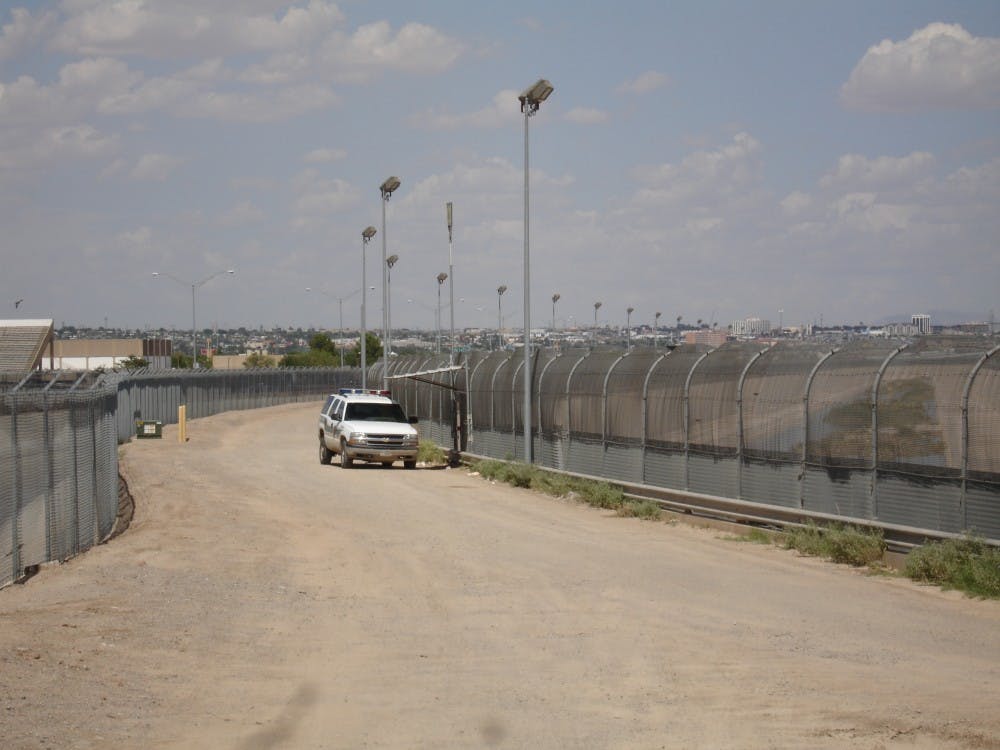Immigration reform has consistently emerged as a key issue in political campaigns for decades, but partisan politics have consistently blocked needed change to our current immigration policy. A thorough review of the processes by which those seeking legal and citizen status obtain such approval from the United States government is long overdue. However, given the bickering from both Democrats and Republicans that has persisted election cycle after election cycle, such reforms are unlikely to take place in the near future.
While Americans wait for elected officials to place politics aside for the good of the country, securing the southern border remains one of the most effective and necessary policies that the legislative and executive branches of the federal government must implement. President Donald Trump, despite his heated rhetoric, won support from the American people on a message of re-affirming the rule of law as it relates to the issue of immigration. Call it a wall, a fence or whatever — securing the border with a physical barrier and auxiliary surveillance equipment, technology and patrol officers remains necessary for the safety of immigrant and natural born residents and citizens alike.
However, support for the security of the United States’ southern border does not equate to a wholesale endorsement of the President’s rhetoric, nor does it equate to any ire or prejudice against immigrants. It does however affirm the reality that our border is in crisis and ignoring the issue will only aggravate it.
According to the Drug Enforcement Administration’s 2018 National Drug Threat Assessment, Mexican cartels continue to transport dangerous drugs like methamphetamine into the United States across the southern border. In 2010, law enforcement seized 8,900 pounds of methamphetamine at the border. By 2018, that number increased to 82,000 pounds. Currently, large portions of the border between the United States and Mexico remain undersecured — particularly in Texas. These weaknesses enable the illegal importation of dangerous drugs like methamphetamine. While authorities seize the majority of illegal drugs at ports of entry, unprotected parts of the border introduce greater uncertainty to the challenge of preventing dangerous substances from entering the US.
While the left-wing media have obsessed over their fantasy of our President acting as a foreign agent on behalf of Russia, the opioid epidemic in the United States has destroyed families and communities across the country. The lack of reporting on this issue relative to the Mueller Report has served media elites’ interests at the expense of the American people — and the consequences that an unsecured border have in the United States have gone ignored. The DEA’s report concluded that in 2017, synthetic opioids were responsible for 30,000 deaths in the US. In 2016, more people died from drug poisoning than deaths by firearms, vehicle crashes, suicide and homicide.
While addressing the existence of a market for such substances remains one issue. Preventing these substances from entering the U.S. in the first place remains another and just as important factor in combating the impact drug abuse continues to have in America.
While other ports of entry to the US and border areas have their own challenges regarding the importation of illegal drugs, the migrant crisis at the southern border presents additional issues not as prevalent as the others — and adds another layer of urgency in addressing its weaknesses.
Yuma, Arizona declared a state of emergency on April 16, 2019 in response to the thousands of asylum seekers have entered the town of 100,000. A Salvation Army shelter with a capacity for 200 people serves as the only infrastructure available to service an area that 24,000 migrant families crossed in the past year. According to the Wall Street Journal, such families are often stuck in Yuma for days as transportation out of the town is limited.
Former Secretary of Homeland Security and University of Virginia Law School alumna Kirstjen Nielsen described the challenges facing border communities in a recent interview, and how such conditions are mirrored across the southwestern United States. While securing the border to prevent such conditions from developing in communities unprepared to handle such influxes is a necessary reform, the larger issue of how to handle future increases in illegal immigration remains a pressing concern. President Trump recently threatened tariffs that would have decimated Mexico’s economy had its government not resolved to do more to prevent illegal immigrants and others from crossing into the United States. The United States and Mexico reached a deal averting the implementation of the tariffs, though such tactics are further complicating relations between the two nations.
Ultimately, voters from across the political spectrum must demand their representatives take action to protect the residents and citizens of the United States and ensure a legal and orderly immigration process — whether they were born here or elsewhere.
Tom Ferguson is an Opinion Columnist for The Cavalier Daily. He can be reached at t.ferguson@cavalierdaily.com







